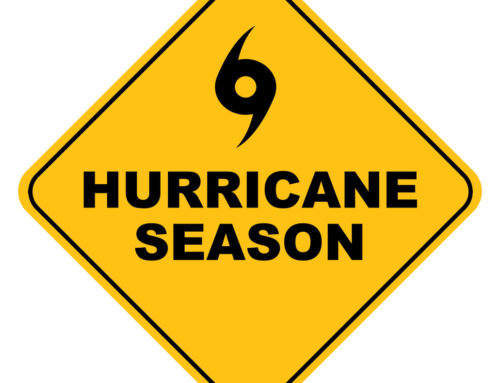Despite the fact that vaccines are the best defense against the further spread of COVID-19, many people are still concerned about the safety and possible side effects. So, FirstLantic has compiled facts from three of the most reputable sources that are available: The Mayo Clinic, John Hopkins and the Center for Disease Control and Prevention. We have put together this list of Myths and Facts to ensure you have all the information you need to make an informed decision.
Myth 1: COVID-19 vaccines will interfere with my DNA:
Fact: COVID-19 vaccines do not change or interact with your DNA in any way.
There are currently two types of COVID-19 vaccines that have been authorized and recommended for use in the United States: messenger RNA (mRNA) vaccines and a viral vector vaccine. Both mRNA and viral vector COVID-19 vaccines deliver instructions (genetic material) to our cells to start building protection against the virus that causes COVID-19. However, the material never enters the nucleus of the cell, which is where our DNA is kept. This means the genetic material in the vaccines cannot affect or interact with our DNA in any way. All COVID-19 vaccines work with the body’s natural defenses to safely develop immunity to disease.
Learn more about how mRNA COVID-19 vaccines work.
Learn more about how viral vector vaccines work.
Myth 2: I should not get the vaccine if I want to become pregnant:
Fact: The COVID-19 vaccine will not affect fertility. The truth is that the COVID-19 vaccine encourages the body to create copies of the spike protein found on the coronavirus’s surface. This “teaches” the body’s immune system to fight the virus that has that specific spike protein on it.
Confusion arose when a false report surfaced on social media, saying that the spike protein on this coronavirus was the same as another spike protein called syncytin-1 that is involved in the growth and attachment of the placenta during pregnancy. The false report said that getting the COVID-19 vaccine would cause a woman’s body to fight this different spike protein and affect her fertility. The two spike proteins are completely different and distinct, and getting the COVID-19 vaccine will not affect the fertility of women who are seeking to become pregnant, including through in vitro fertilization methods. During the Pfizer vaccine tests, 23 women volunteers involved in the study became pregnant, and the only one who suffered a pregnancy loss had not received the actual vaccine, but a placebo. Getting COVID-19, on the other hand, can have a potentially serious impact on pregnancy and the mother’s health. Learn more about coronavirus and pregnancy.
Myth 3: Researchers rushed the development of the COVID-19 vaccine, so its effectiveness and safety cannot be trusted.
Fact: Studies found that the two initial vaccines are both about 95% effective — and reported no serious or life-threatening side effects. There are many reasons why the COVID-19 vaccines could be developed so quickly. Here are just a few:
- The COVID-19 vaccines from Pfizer/BioNTech and Moderna were created with a method that has been in development for years, so the companies could start the vaccine development process early in the pandemic.
- China isolated and shared genetic information about COVID-19 promptly, so scientists could start working on vaccines.
- The vaccine developers didn’t skip any testing steps but conducted some of the steps on an overlapping schedule to gather data faster.
- Vaccine projects had plenty of resources, as governments invested in research and/or paid for vaccines in advance.
- Some types of COVID-19 vaccines were created using messenger RNA (mRNA), which allows a faster approach than the traditional way that vaccines are made.
- Social media helped companies find and engage study volunteers, and many were willing to help with COVID-19 vaccine research.
- Because COVID-19 is so contagious and widespread, it did not take long to see if the vaccine worked for the study volunteers who were vaccinated.
- Companies began making vaccines early in the process — even before FDA authorization — so some supplies were ready when authorization occurred.
Myth 4: I already had COVID-19 and I have recovered, so I don’t need to get a COVID-19 vaccine when it’s available.
Fact: There is not enough information currently available to say if or for how long after infection someone is protected from getting COVID-19 again. This is called natural immunity. Early evidence suggests natural immunity from COVID-19 may not last very long, but more studies are needed to better understand this. Mayo Clinic recommends getting the COVID-19 vaccine, even if you’ve had COVID-19 previously. However, those that had COVID-19 should delay vaccination until about 90 days from diagnosis.
Myth 5: Getting the COVID-19 vaccine means I can stop wearing my mask and taking coronavirus precautions.
FACT: Individuals who get the COVID-19 vaccination still need to practice infection prevention precautions. Keep your mask on and continue staying at least 6 feet from people outside your household, until further notice. Vaccines do not stop the coronavirus from entering your body; they only prevent you from developing moderate to severe COVID-19. It’s not yet clear if people vaccinated for COVID-19 can still carry and transmit the virus, even when they themselves don’t get sick.
Myth 6: The COVID-19 vaccine will make me sick with COVID-19.
Fact: No. None of the authorized and recommended COVID-19 vaccines or COVID-19 vaccines currently in development in the United States contain the live virus that causes COVID-19. This means that a COVID-19 vaccine cannot make you sick with COVID-19.
COVID-19 vaccines teach our immune systems how to recognize and fight the virus that causes COVID-19. Sometimes this process can cause symptoms, such as fever. These symptoms are normal and are signs that the body is building protection against the virus that causes COVID-19. Learn more about how COVID-19 vaccines work.
It typically takes a few weeks for the body to build immunity (protection against the virus that causes COVID-19) after vaccination. That means it’s possible a person could be infected with the virus that causes COVID-19 just before or just after vaccination and still get sick. This is because the vaccine has not had enough time to provide protection.
Myth 7: The side effects of the COVID-19 vaccine are dangerous.
FACT: On Apr. 13, the CDC and FDA recommended a pause in using the J&J vaccine. Johns Hopkins Medicine will temporarily stop using the vaccine pending CDC and FDA reviews. Read full story.
The Pfizer and Moderna COVID-19 vaccines can have side effects, but the vast majority are very short term —not serious or dangerous. The vaccine developers report that some people experience pain where they were injected; body aches; headaches or fever, lasting for a day or two. These are signs that the vaccine is working to stimulate your immune system. If symptoms persist beyond two days, you should call your doctor.
If you have allergies — especially severe ones that require you to carry an EpiPen — discuss the COVID-19 vaccine with your doctor, who can assess your risk and provide more information about if and how you can get vaccinated safely.
Myth 8: The COVID-19 vaccine was developed to control the general population either through microchip tracking or “nano transducers” in our brains.
Fact: There is no vaccine microchip, and the vaccine will not track people or gather personal information into a database. This myth started after comments made by Bill Gates from The Gates Foundation about a digital certificate of vaccine records. The technology he was referencing is not a microchip and has never been implemented in any manner nor is it tied to the development, testing or distribution of COVID-19 vaccines.
Myth 9: The messenger RNA technology used to make the COVID-19 vaccine is brand new.
FACT: The mRNA technology behind the new coronavirus vaccines has been in development for almost two decades. Vaccine makers created the technology to help them respond quickly to a new pandemic illness, such as COVID-19.
Myth 10: The COVID-19 vaccine was developed with or contains controversial substances.
FACT: The first two COVID-19 vaccines to be authorized by the FDA contain mRNA and other, normal vaccine ingredients, such as fats (which protect the mRNA), salts, as well as a small amount of sugar. These COVID-19 vaccines were not developed using fetal tissue, and they do not contain any material, such as implants, microchips, or tracking devices.
So, there you have it, just the facts!
To read more FirstLantic blogs, click here.
 AVAILABLE 24 HOURS A DAY/7 DAYS A WEEK
AVAILABLE 24 HOURS A DAY/7 DAYS A WEEK Careers
Careers







